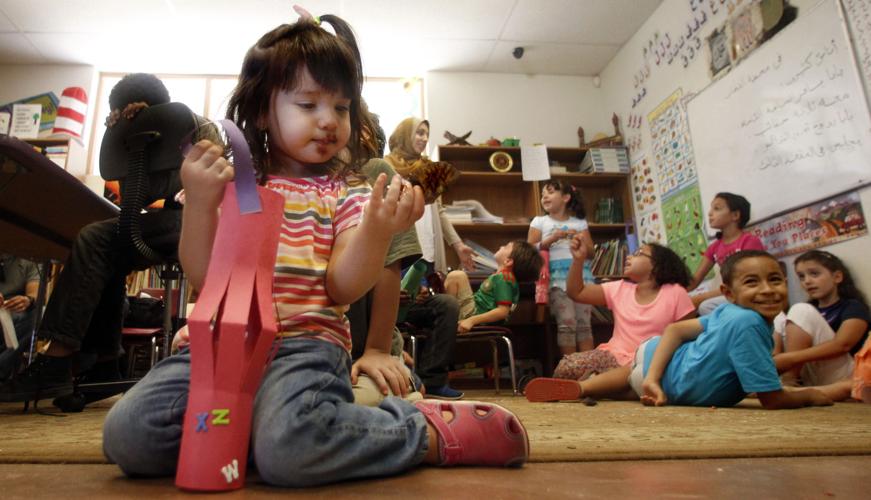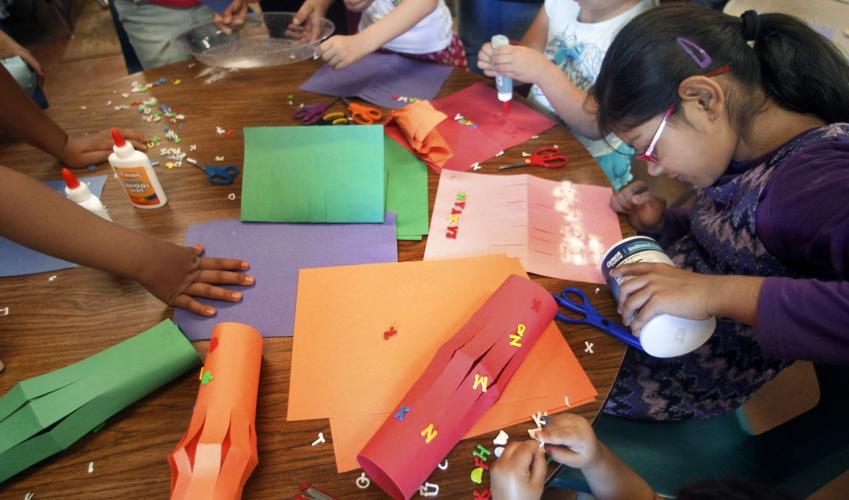With regret, 8-year-old Lujaine Sadoun admitted that she broke her fast just before the end of the day during Ramadan last year.
She had fasted before, but a whole day was a long time.
“I fasted for the whole day — not the whole day,” Lujaine said. “Like five minutes before, I ate a pepper.”
Vegetables, of all things, did her in before sunset.
“I’m not sure if it was five minutes exactly,” Lujaine clarified. “But we had somebody over, and my mom was slicing the peppers, and I just took one and stuck it in my mouth.”
Many Muslims begin fasting Thursday for the month of Ramadan, which is the ninth month of the Islamic calendar and based on the sighting of the crescent moon.
Children, along with individuals who are elderly, pregnant or have a medical condition, are exempt from the practice included in the Five Pillars of Islam. Despite that, kids still try the fast, abstaining from food and drink from dawn to sunset — or at least for a few hours.
At the summer program at Al Huda Islamic School, 2800 E. River Road, Rania Kanawati, the school board’s chairwoman and treasurer, asked students how long they would fast this year.
Days, said some. Weeks, said others. “One hundred million!” shouted one boy.
On Monday and Tuesday, the final days of the summer program, students ages 5 to 13 learned about Ramadan.
“My daughter last year fasted the whole Ramadan, and my son, he tried to fast three days,” said Fatma Fahim, a school volunteer and mother of an 11-year-old girl and 8-year-old boy. She reminded her son he did not have to fast. “But he said: ‘No, I want to be with you. I will eat with you at the end of the day.’ ”
Fahim rewards her children with a dollar or two for every day they participate. Children are encouraged to start small, adding an hour at a time to their fast.
Sarah Hemzawi, Kanawati’s daughter, remembers when she began fasting for the whole month around fifth grade. She wanted to join her parents and older friends. Most children begin fasting for the duration of the month around the age of 13 or 14, Kanawati said.
Now 20 and a May graduate from the University of Arizona, Hemzawi led much of the summer program, showing students how to make paper lanterns. Some will hang at the Islamic Center of Tucson, 901 E. First St., where many families will gather for the iftar, the breaking of the fast at the end of each day.
Even for children who don’t skip meals, Ramadan means a month of nightly community get-togethers, decorations, food preparation and a big celebration — including gifts — when Eid al-Fitr concludes the holy month.
But beyond the festivities, the month encourages piety and self reflection, along with an empathy with the poor.
“One of my best friends was a refugee from Afghanistan,” Hemzawi said. Spending time with her friend taught her about difficult experiences. Ramadan gave her a way to understand, at least a little.
“You feel like how the poor people feel, and you feel weak, and you’re close to Allah,” said Lujaine. After that, food tastes “yummy!”





